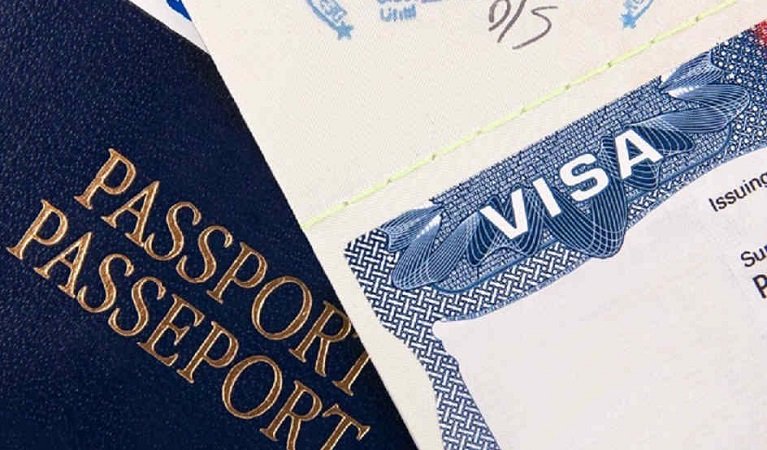Henley & Partners Passport Index: A Global Businessman’s Best Friend
I. Henley & Partners – A Firm of Global Citizens A. Introduction to Henley & Partners Henley & Partners, a renowned global firm, stands at the forefront of citizenship and residence planning. With a remarkable track record, this pioneering company has empowered countless individuals, families, and businesses to access the world through top-ranking passports. Their experience and unparalleled understanding of the global landscape make them a leading name in the industry. B. Overview of the Passport Index The Henley & Partners Passport Index is vital in understanding global mobility. It ranks the world’s passports based on the number of destinations that can be accessed without a prior visa. The index draws upon complex data, legal insights, and an intricate understanding of international regulations to provide a comprehensive view of passport power. C. The relevance of the index to both businesspeople and the general public The Passport Index transcends business interests, reaching the lives of the general populace. It’s a compass for businesspeople that guides international expansion, facilitating business travel, negotiations, and trade. For the broader public, it signifies a gateway to a world of opportunities, offering the freedom to explore, study, work, or even relocate easily. D. The universal appeal of owning a top-ranking passport Owning a top-ranking passport isn’t merely a status symbol; it’s a life-enhancing asset: a master key. The benefits of a high-ranking passport echo in every facet of life, from business growth and personal development to security and global acceptance. The allure of such a passport extends beyond borders, encompassing individuals from various walks of life, united by the desire for a life without restrictions. II. WHY EVERYONE NEEDS A TOP-RANKING PASSPORT A. The practical benefits for travel, living, and working abroad A top-ranking passport is not just an essential document; it’s a ticket to freedom. It opens doors to unhindered travel, offering the opportunity to live and work in various locations worldwide. Whether you’re a seasoned business traveller, a student seeking education abroad, or an explorer with wanderlust, a high-ranking passport makes international movement seamless. B. Increased security and global acceptance In an ever-changing global landscape, security cannot be underestimated. Holders of top-ranking passports enjoy the peace of mind that comes with worldwide acceptance and often less scrutiny at border controls. Such passports are recognised and respected worldwide, enhancing personal security and facilitating smoother journeys. C. Economic advantages and potential for personal growth Economic prosperity and personal development often go hand-in-hand with global mobility. A top-ranking passport affords individuals access to thriving markets, world-class education, diverse cultures, and investment opportunities. This, in turn, fosters growth, innovation, and a competitive edge that transcends geographical boundaries. D. The role of Henley & Partners in making this accessible Navigating the complexities of acquiring a top-ranking passport can be daunting. This is where Henley & Partners excels. With a rich history in assisting clients to secure powerful passports through investment, Henley & Partners makes global accessibility a reality. Their bespoke services, profound insights, and dedicated guidance transform aspirations into achievements, demonstrating that a life without borders is within reach for everyone. III. HISTORY OF CITIZENSHIP BY INVESTMENT A. Origins and evolution of the concept Citizenship by investment is a transformative concept that has revolutionised how we perceive nationality and global access. Emerging in the late 20th century, this idea allowed individuals to acquire citizenship through significant financial contributions to the host country. It marked the birth of a new era where citizenship became an attainable goal, not just a birthright. B. How Henley & Partners pioneered in this field Henley & Partners were not merely participants in Citizenship by Investment; they were the innovators who fundamentally created the concept. Their visionary approach has laid the groundwork for the modern practice of Citizenship by Investment, and they continue to be at the forefront of this ever-evolving industry. Their innovative methods have shaped international standards and guided governmental policies, establishing Citizenship by Investment as a legitimate and highly sought-after route for individuals and families seeking new opportunities, security, and growth. By developing and refining this concept, Henley & Partners have opened doors to international mobility, investment, and collaboration, setting the benchmark for quality and expertise in this unique field. C. Case studies of countries offering citizenship by investment IV. UNDERSTANDING THE INDEX A. Explanation of the ranking criteria The Henley Passport Index ranks passports according to their travel freedom, determined by the number of destinations that can be accessed without a visa. This ranking considers various factors such as political relations, bilateral agreements, and international regulations. B. Insights into the methodology The methodology behind the index is both rigorous and complex. By working closely with the International Air Transport Association (IATA) and considering data from various government sources, Henley & Partners ensures an accurate and unbiased representation of global travel freedom. C. Utilising examples to illustrate what sets top-ranking passports apart The disparity between top-ranking and lower-ranking passports often reflects international stature, economic stability, and geopolitical alliances. V. ADVANTAGES OF GAINING A TOP PASSPORT A. Ease of international travel and business expansion Owning a top-ranking passport facilitates seamless international travel and business expansion. It reduces bureaucratic hassles and fosters an environment conducive to global commerce, enabling entrepreneurs to leverage international opportunities efficiently. B. Social and economic benefits for individuals and families A top-ranking passport offers individual prestige and provides families access to better education, healthcare, and lifestyle opportunities. It enhances social mobility and fosters economic stability by opening doors to a myriad of benefits in various countries. C. How Henley is the gold-star in assisting with acquiring top passports Henley & Partners stands as a beacon in the field, assisting clients in acquiring top passports through tailored solutions. With a rich legacy and unparalleled expertise, Henley simplifies the complex process of obtaining a high-ranking passport, providing meticulous guidance and support at every stage. VI. PATH TO ATTAINING A TOP PASSPORT A. General guidelines and requirements Attaining a top-ranking passport is an intricate process requiring adherence to specific guidelines and requirements.
Henley & Partners Passport Index: A Global Businessman’s Best Friend Read More »




